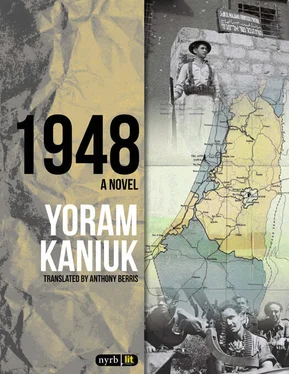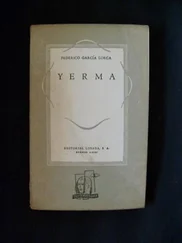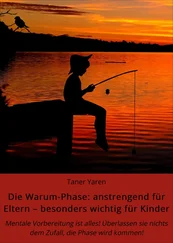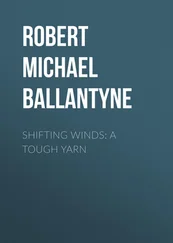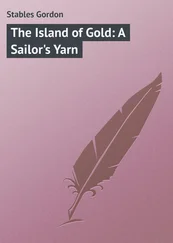A tired teacher feeling the pain of the nation’s fate — as the teacher Blich described himself— led us to stand and wait for the Jews. And when we saw them coming, right away we shouted, How good it is that they’ve come to Eretz Yisrael, and that was when on Fridays we’d put on shows about the ghetto and stick on beards of painted straw and put Plasticine on our noses so we’d look Jewish, like the ones who sell salt herring and blow their nose like a trumpet and speak Yiddish. Only a few of us knew Yiddish, and most of those in whose homes Yiddish was spoken pretended they didn’t understand it. After all, we are the sons of pioneers, Hebrew labor, Jew Speak Hebrew, and we’ll go to kibbutzim, we’ll be Sheikh Abrek*, we’ll conquer the wilderness, we’ll build and be built in our land. We shall smite our enemies. We’ll drive out the British. We’ll be heroes. We declaimed Brenner’s words, “Blessed is he who dies in such awareness — with Tel-Hai* before his eyes.” Just so we’re not bowed from fear and ugly like the Jews — that’s what we said, stupid kids that we were.
So what are Jews? The ones who came in 1938 when we stood facing them at the port and shouted our welcome? The ones who didn’t heed us? Those were the days when we emotionally declaimed Avigdor Hameiri’s poem: “On paper white as snow / A letter comes from the Diaspora / A weeping mother writes: To my good son in Jerusalem, / Your father is dead, your mother sick … / Come home, my lovely son …” And the reply: “On plain paper, gray as dust / A letter goes to the Diaspora / A pioneer writes with teary eye, Jerusalem, 1928 / Forgive me, my sick mother / I shall not return to the Diaspora! / If you love me / You come here and embrace me / And no longer shall I be a wanderer! / I shall never budge from here …”
In 1939 High Commissioner Wauchope had already been forced out, and the British halted immigration, and the Arabs won in their riots against Jewish immigration, so that Jewish refugees were unable to come, but they tried to come and the majority drowned on the way, and only a few succeeded.
At the height of the war I came back from a talk with my commanding officer at Kiryat Anavim and went to sleep. Before that I’d had some dry bread with mallow. The loaf was wrapped in vine leaves, and somebody said I winced because I was wounded, but perhaps I was just thirsty. Someone woke me up and told me to go up to the Castel*, the old Roman town, with a few guys. He said there’d been some hard fighting that night and we’d taken the, but the guys who’d taken it were tired and needed to be relieved. We went up the mountain and saw them coming down. They were shuffling along like a funeral cortege. Rocking from side to side. One guy who knew me came over and said, Listen, don’t go up there, it’s a shithole of a place. I said that I had to go up. He held a kind of gauze pad with ointment on it against a wound on his arm and said with a smile, You know why it’s called gaza gauze? Because it’s from Gaza. I asked him if it was because they’d found gauze in Gaza one day, and he patted my cheek, laughed, and said, In Roman times or later, I don’t remember exactly when, I was a kid, the best cotton wool in the country came from Gaza and they built a gauze factory there.
The officer kicked him so he’d move on, and we shouted Ahalan —hi there — which was the opposite of what we should have said, and we marched on upward to the big building at the summit. My section commander, Kushi (“Blackie”—to this day I don’t know what his real name was), went up by a different route and was waiting for us when we got there. He said, We’ve got to defend the summit, and if we see anything move then raise the alarm, and if necessary, open fire, and also, we’ve got to keep an eye on the Jerusalem soldiers because they haven’t yet been under fire and maybe they’ll take off. We came to a fine stone building in the shade of thickly leaved trees and sat down. Two guys played cards. I looked at the view. There were those beautiful birds that wove arabesques in the sky. You could hear them twittering. To this day, in the mist of forgetfulness, I can hear them.
We didn’t see anything suspicious facing us and suddenly my friend Ari-nom-de-plume appeared and said he’d found hashish in the village below and put it in a sack and he was going down to Kiryat Anavim in the evening, and he’d take the sack, and come back, and I shouldn’t snitch on him because he’d make a lot of money from the hashish. Kushi saw him and knew how brave he was and ordered him to go down quickly and take a message to headquarters, and he wanted to be angry with him, but at that moment two of the Jerusalmites panicked and yelled that they wanted to go home, and he and I talked to them. They begged us to let them get out of there. I told them it was impossible. After a short period of sobbing they changed their minds, calmed down, and I fell asleep. After a quick nap I ate a little bread we’d found in the village and some delicious crushed olives and some carob pods from which we brewed tea. Just before morning Ari-nom-de-plume came back glowing and said that on the way to Kiryat Anavim he’d met some non-enlisted Jerusalemite on the fucking road and immediately realized that he was looking for bargains because he knew these types, and when the man heard he had some hashish he took out some money and gave it to him and ran down the hill to Pension Fefferman. Ari-nom-de-plume wanted to give me a few pounds in friendship, but I said that here in the war you’re either dead or crazy, and a lunatic doesn’t need money.
Suddenly we heard a shout, Fire! And a moment later, Ow! Somebody yelled, I’ve taken two bullets. He really had, we checked him out, one had hit him a millimeter from his right ear, and the second about a millimeter from the left one, but he was only scratched. We laughed, and then miraculously I took a bullet near my eye, it hurt a lot, burned, the round had apparently entered the pouch of skin that holds the eye, and the eye came loose and I held it in my hand, and since the bullet was perhaps almost spent it only scratched me, and the eye I was holding remained whole and I put it back into its socket, and a medic bandaged me.
The firing became more frequent and we said that the guy with two scratches by his ears would now hear better, and that I’d see better, and then we heard a roar. Then we heard something like a crawling sea, and emerging slowly from the roaring all hell broke loose. A human mass like locusts denuding the land climbed rapidly toward us. The black-and-red kaffiyehs stormed upward, skipping over the rocks. There were hundreds that jumped from the southern side of the mountain. We didn’t know where this big army had sprouted from and where it had hidden, and it was scary seeing it swarm like a band of apes climbing up rocks and shooting.
For a moment Kushi was as confused as us, and Haim K. had a panic attack and ran like a madman towards a sheikh’s tomb farther down the slope by the road, and he was fired at but the shots missed him, and Kushi sent a soldier to the command post with a message, and we started firing randomly at the attackers we could hardly see. They screamed Aleihum and Allahu Akbar , and Kushi laughed, and I thought we’re not getting out of here alive. Somebody started singing “ Besame Mucho ” in Arabic: “ El bi mahrouf ”, so we realized that this was the end of us.
We were some ten tired fighters by the mukhtar’s* house that was shrouded in olive trees, and there were hundreds in the horde charging at us from all directions, and we fire back and somehow manage not to fall asleep between the shots, and I see a magnificent kaffiyeh held in place with a golden akal and beneath it a man brandishing a sword, and Moshe yells, Look at that one, a real Rudolph Valentino! And the Buck Jones in the kaffiyeh shouts in English, Hello boys, and we don’t really understand why we’re being shouted at in English, and his men are firing at us and leaping, and Moshe hits Valentino just as he realizes he’s made a mistake and draws a pistol to shoot at us, and then the shit really hit the fan. Some of us are hit, time stands still, and there’s lots of shooting.
Читать дальше
